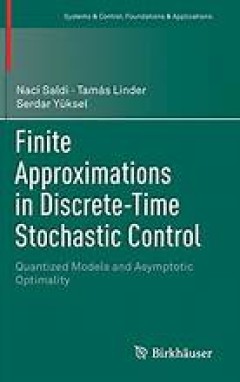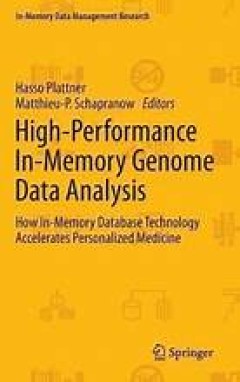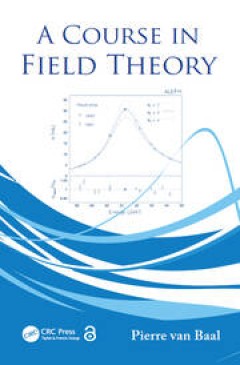Filter by

Finite Approximations in Discrete-Time Stochastic Control
In a unified form, this monograph presents fundamental results on the approximation of centralized and decentralized stochastic control problems, with uncountable state, measurement, and action spaces. It demonstrates how quantization provides a system-independent and constructive method for the reduction of a system with Borel spaces to one with finite state, measurement, and action spaces. In…
- Edition
- 1
- ISBN/ISSN
- 978-3-319-79033-6
- Collation
- Mathematics
- Series Title
- -
- Call Number
- 510

High-Performance In-Memory Genome Data Analysis
Recent achievements in hardware and software developments have enabled the introduction of a revolutionary technology: in-memory data management. This technology supports the flexible and extremely fast analysis of massive amounts of data, such as diagnoses, therapies, and human genome data. This book shares the latest research results of applying in-memory data management to personalized medic…
- Edition
- 1
- ISBN/ISSN
- 978-3-319-03035-7
- Collation
- Manajemen System
- Series Title
- In-Memory Data Management Research
- Call Number
- 658

A Course in Field Theory
Extensively classroom-tested, A Course in Field Theory provides material for an introductory course for advanced undergraduate and graduate students in physics. Based on the author's course that he has been teaching for more than 20 years, the text presents complete and detailed coverage of the core ideas and theories in quantum field theory.
- Edition
- -
- ISBN/ISSN
- 9780429073601
- Collation
- -
- Series Title
- -
- Call Number
- 519

Chapter Hybrid Access Techniques for Densely Populated Wireless Local Area Ne…
- Edition
- -
- ISBN/ISSN
- -
- Collation
- -
- Series Title
- -
- Call Number
- 519
- Edition
- -
- ISBN/ISSN
- -
- Collation
- -
- Series Title
- -
- Call Number
- 519

Humanities Data in R Exploring Networks, Geospatial Data, Images, and Text
This pioneering book teaches readers to use R within four core analytical areas applicable to the Humanities: networks, text, geospatial data, and images. This book is also designed to be a bridge: between quantitative and qualitative methods, individual and collaborative work, and the humanities and social sciences. Humanities Data with R does not presuppose background programming experience. …
- Edition
- -
- ISBN/ISSN
- 978-3-319-20701-8
- Collation
- XIII, 211
- Series Title
- -
- Call Number
- 004 AMO h

Gauge Theories in Particle Physics Volume 1, From Relativistic Quantum Mechan…
Volume 1 of this revised and updated edition provides an accessible and practical introduction to the first gauge theory included in the Standard Model of particle physics: quantum electrodynamics (QED).The book includes self-contained presentations of electromagnetism as a gauge theory as well as relativistic quantum mechanics. It provides a uniqu
- Edition
- -
- ISBN/ISSN
- 9780429185380
- Collation
- -
- Series Title
- -
- Call Number
- -

Gauge Theories in Particle Physics : A Practical Introduction, Volume 2: Non-…
Volume 2 of this revised and updated edition provides an accessible and practical introduction to the two non-Abelian quantum gauge field theories of the Standard Model of particle physics: quantum chromodynamics (QCD) and the Glashow-Salam-Weinberg (GSW) electroweak theory.This volume covers much of the experimental progress made in the last ten y
- Edition
- -
- ISBN/ISSN
- 9780429185397
- Collation
- -
- Series Title
- -
- Call Number
- 519

Group Theory for the Standard Model of Particle Physics and Beyond
Based on the author’s well-established courses, Group Theory for the Standard Model of Particle Physics and Beyond explores the use of symmetries through descriptions of the techniques of Lie groups and Lie algebras. The text develops the models, theoretical framework, and mathematical tools to understand these symmetries. After linking symmetries with conservation laws, the book works thr…
- Edition
- -
- ISBN/ISSN
- 9780429184550
- Collation
- -
- Series Title
- -
- Call Number
- -

Understanding Test and Exam Results Statistically An Essential Guide for Tea…
This book shares the goal of the classic text How to Lie with Statistics, namely, preventing and correcting statistical misconceptions that are common among practitioners, though its focus is on the educational context. It illustrates and discusses the essentials of educational statistics that will help educational practitioners to do this part of their job properly, i.e., without making concep…
- Edition
- -
- ISBN/ISSN
- 978-981-10-1581-6
- Collation
- -
- Series Title
- -
- Call Number
- -

Engineering Education 4.0 Excellent Teaching and Learning in Engineering Sci…
This book presents a collection of results from the interdisciplinary research project “ELLI” published by researchers at RWTH Aachen University, the TU Dortmund and Ruhr-Universität Bochum between 2011 and 2016. All contributions showcase essential research results, concepts and innovative teaching methods to improve engineering education. Further, they focus on a variety of areas, includ…
- Edition
- 1
- ISBN/ISSN
- 978-3-319-46916-4
- Collation
- 83 b/w illustrations, 245 illustrations in colour
- Series Title
- -
- Call Number
- -
 Computer Science, Information & General Works
Computer Science, Information & General Works  Philosophy & Psychology
Philosophy & Psychology  Religion
Religion  Social Sciences
Social Sciences  Language
Language  Pure Science
Pure Science  Applied Sciences
Applied Sciences  Art & Recreation
Art & Recreation  Literature
Literature  History & Geography
History & Geography